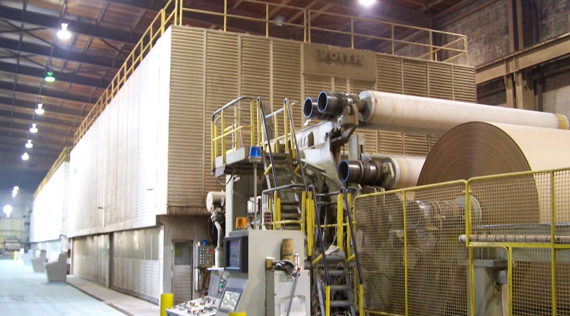
SEATTLE (Scrap Monster): The latest research report published by the Book Industry Environmental Council (BIEC) highlights on the sustainability efforts of the industry. It notes that while efforts are in full swing to improve environmental practices, the lack of availability of paper is considered as the biggest challenge. The report titled “Book Industry Environmental Trends 2016” was prepared based on a poll conducted among publishers, paper manufacturers and printers.
The report notes that the use of recycled fiber in book papers has reported continuous decline in recent surveys. After increasing rapidly between 2004 and 2009, the average recycled content in book papers reported by paper manufacturers leveled out between 2009 and 2010 and decreased slightly by 2012. The most recent data show that not only has the downward trend in recycled fiber in book papers continued, but it has decreased at an accelerating rate. The average recycled content from participating manufacturers dropped significantly from 22% recycled fiber in 2012 to just 12% in 2014.
Many within the industry believe that a large contributor to this decrease is the increasing trend towards single stream curbside recycling. Such contamination ultimately increases the cost of producing high-quality recycled printing and writing grades. As a result, certain companies that produce recycled book grades either reduced the recycled content of those grades or stopped making recycled book papers.
The response to the survey indicates that paper manufacturers are using less recycled paper in making the paper used in books. However, publishers noted that they used the same amount of recycled paper in their books in 2014, when matched with the previous year.
All participating publishers used recycled paper in 2014 also, 82% of the participating publishers expected to use the same amount of recycled paper in 2015, while remaining 18% expected to use more recycled paper in 2015 than in 2014. None of the participating publishers expected to use less recycled paper in 2015.
According to the survey, 91% of the participating publishers used FSC certified paper in 2014, and as with recycled fiber, the majority expected to use the same amount of FSC certified paper in 2015, though a relatively larger percentage of those using FSC certified paper expected to use more in 2015 (40%). A slight majority of publishers (55%) used SFI or PEFC certified paper in 2014. Out of these publishers, 83% expected to use the same amount in 2015, with the remaining 17% publishers expecting to use more SFI or PEFC certified Paper in 2015.
All participating printers used recycled paper in 2014, with 75% expecting to use more recycled fiber in 2015 and remaining 25% expecting to use the same amount.
The survey reveals several reasons for the reduction in availability of recycled paper. The increased contamination from single stream recovery and mixed waste processing centers is one among them. Shrinking paper consumption and increased competition with overseas markets, especially China has also led to recycled fiber declines. The shortage is also attributed to capacity closures of deinking facilities and production shuts of paper mills or machines that produced high recycled content grades.
About Book Industry Environmental Council
The BIEC is a nonprofit program that strives to benchmark, track and improve the book market’s environmental footprint with science-based research and collaboration from a balanced and fully represented supply chain including: publishers, book manufacturers, paper manufacturers and suppliers, and environmental NGOs. The Council’s members work collaboratively to identify, foster, and communicate best practices to reduce the book industry’s impact and increase the sustainability of books.
| Copper Scrap View All | |
| Alternator | 0.31 (0) |
| #1 Copper Bare Bright | 3.70 (0.05) |
| Aluminum Scrap View All | |
| 356 Aluminum Wheels (Clean) | 0.71 (0) |
| 6061 Extrusions | 0.62 (0) |
| Steel Scrap View All | |
| #1 Bundle | 475.00 (0) |
| #1 Busheling | 495.00 (0) |
| Electronics Scrap View All | |